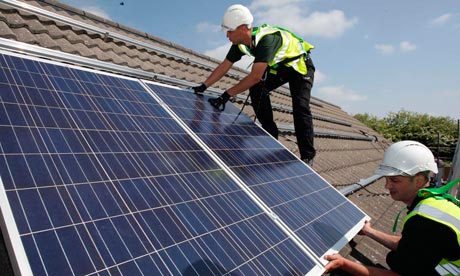When growing your business, it’s essential to know which marketing efforts are worth investing in. With more options available than ever before, choosing the best channel for your business can feel overwhelming. That said, email marketing remains a great tactic that helps eCommerce companies thrive in this saturated market. Aside from the fact that this strategy is 40% better at converting than some social media platforms, it is also an excellent channel for generating leads, making sales, and retaining customers. But before you set up an email marketing campaign, it’s essential to grow a reliable online presence for your business so customers can browse and shop in your online store without any trouble. A good start is the most suitable hosting for business and a relevant domain name. So if you’re wondering whether email marketing is the right marketing option for you and how well it would pay off, continue reading this article. Generates the Highest ROI ROI, which stands for return on investment, refers to the incremental revenue per dollar spent. Implementing a high-generating ROI marketing strategy is essential to keep businesses profitable and running for the long haul. Compared to other marketing methods, email marketing tends to generate the highest ROI. For every dollar spent on this marketing tactic, businesses get an ROI of $40. In retrospect, search engine optimization (SEO) only generates $22.24, and mobile marketing yields at only $10.51. When done right, this practice benefits businesses in the following ways: Justifies marketing spend Compares marketing efficiency Provides insight on what to spend more on With the correct information, businesses can plan a lucrative marketing strategy, spending less to gain maximum revenue. Increases Web Traffic According to HubSpot, the most significant marketing challenge for businesses is generating traffic and leads. No matter the size of your business, having an email marketing strategy is vital. In 2021, there are 4.147 million email users and 319.6 billion sent and received emails per day. With that in mind, people worldwide are reachable through their email inbox, making email marketing a suitable strategy to drive more traffic to your website. The first step to email marketing is building an email list – a collection of email addresses from people who permit you to send them emails. Typically, people provide their email addresses in exchange for a special offer, valuable resources, or freebies. For instance, if your business sells kitchen appliances, consider offering a healthy recipe eBook in return for their email addresses. Next, make sure the emails you send are not spammy. Avoid sending them too often and including unnecessary information. Instead, keep them concise and provide a clear call-to-action button to drive targeted traffic to the pages you choose. Easy to Measure Measuring your marketing efforts is critical. It gives insight into what works, what doesn’t, and where to improve, allowing businesses to plan a better strategy for maximum results. Here are several email marketing metrics to measure to help improve the outcome: Open rate. This refers to the percentage of recipients who opened your email. Consider personalizing the subject line with the recipient’s first name to increase the open rate. Click-through rate. Shows how many recipients clicked on a link attached to your email. Pay attention to the anchor text, link placement, and button color choice. Unsubscribe rate. The percentage of recipients who unsubscribe from your mailing list. This is mostly due to unrecognizable sender, weak brand identity, and emailing too often. Complaint rate. This is the percentage of recipients who marked your email as spam. Reasons for high complaint rates include leaving out the unsubscribe link in your emails and sending irrelevant content. Conversion rate. The number of recipients who completed your desired action, such as purchasing a product, subscribing to a channel, or signing up for a course. Bounce rate. Shows total emails that weren’t successfully delivered, which is mainly due to the wrong email address, overloaded server, or full mailbox on the recipient’s part. Builds a Lasting Customer Base Aside from attracting new customers, it’s also critical to retain the existing ones. Not only will doing so help increase sales but a loyal and lasting customer base will also boost your company’s growth and brand reputation. A great way to achieve that by email marketing is through loyalty programs – a marketing strategy to encourage repeat orders and increase brand loyalty. Here’s a list of programs worth considering: VIP programs. Consider offering access to special deals such as coupon codes or early launch discounts to those who sign up as VIP members. Brand ambassador programs. Offer various perks such as invitations to brand events and access to exclusive communities to those who become brand ambassadors. Referral programs. Encourage customers to invite others to try your brand or service by giving redeemable points for every successful conversion. Email Is a Preferred Communication Channel 83% of customers prefer to hear from brands via email. That said, it’s important to pay attention to your audiences’ needs. For instance, 54% of consumers want businesses to make it easy to opt out of their mailing list. Therefore, include an easy-to-spot unsubscribe button for their convenience. Additionally, personalize your emails as this strategy boosts transaction rates by six times. Customers also state they’re more likely to shop when offered personalized offers and product recommendations. A great example of this is Netflix, where they send emails based on the customer’s watch history. Without personalization, you risk losing customers, as 74% of them get frustrated when content has nothing to do with them. Boosts Sales When done right, email marketing can boost sales. To do that, consider using email segmentation, the practice of dividing your email list into different groups so marketers can tailor unique campaigns to each segment. As a marketer, you can segment based on a few criteria, such as signup date, group interest, or subscriber activity. That said, segmentation enables marketers to respond to subscribers’ behaviors and make customized messages relevant to their needs. This practice can garner 14.31% higher









